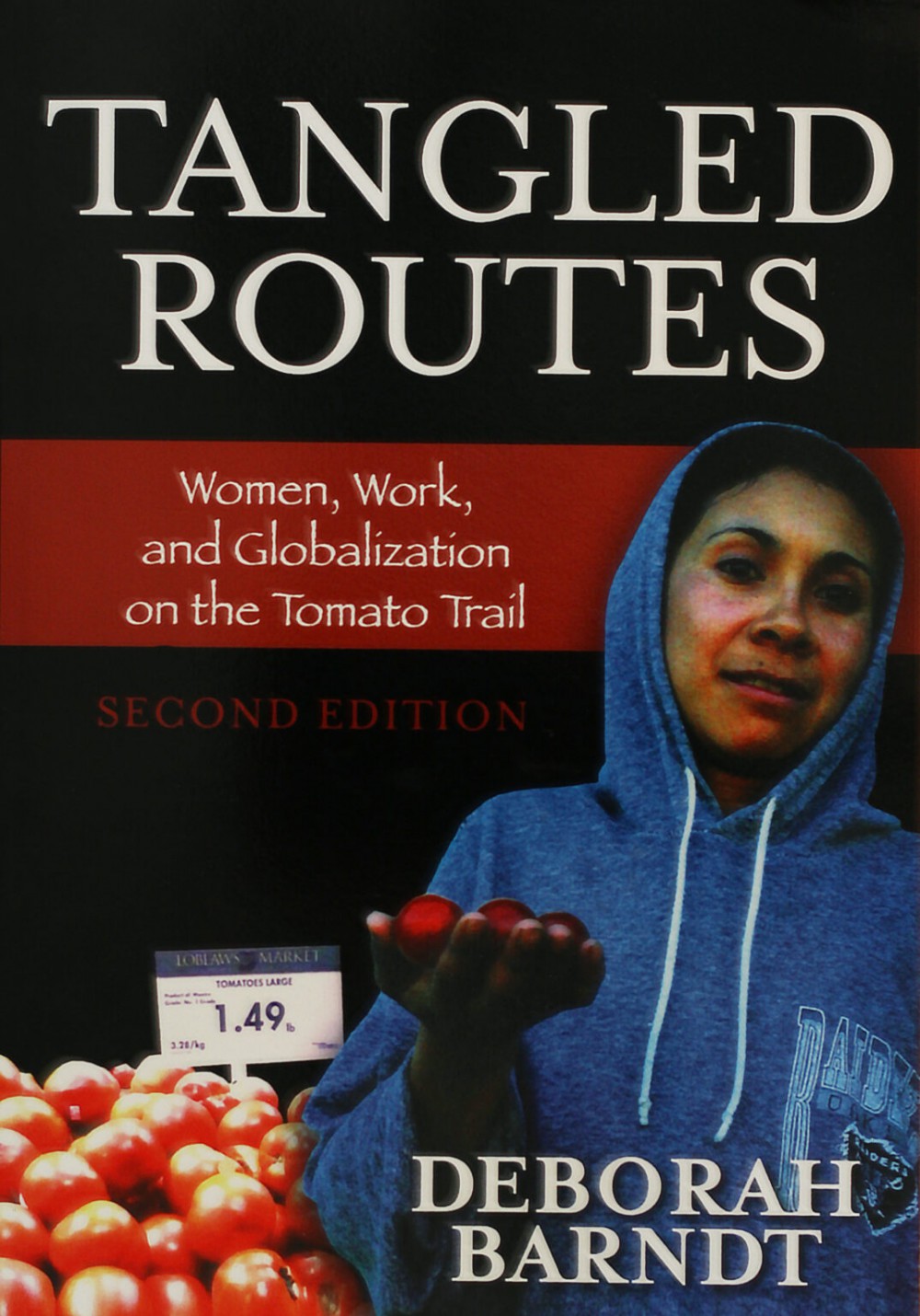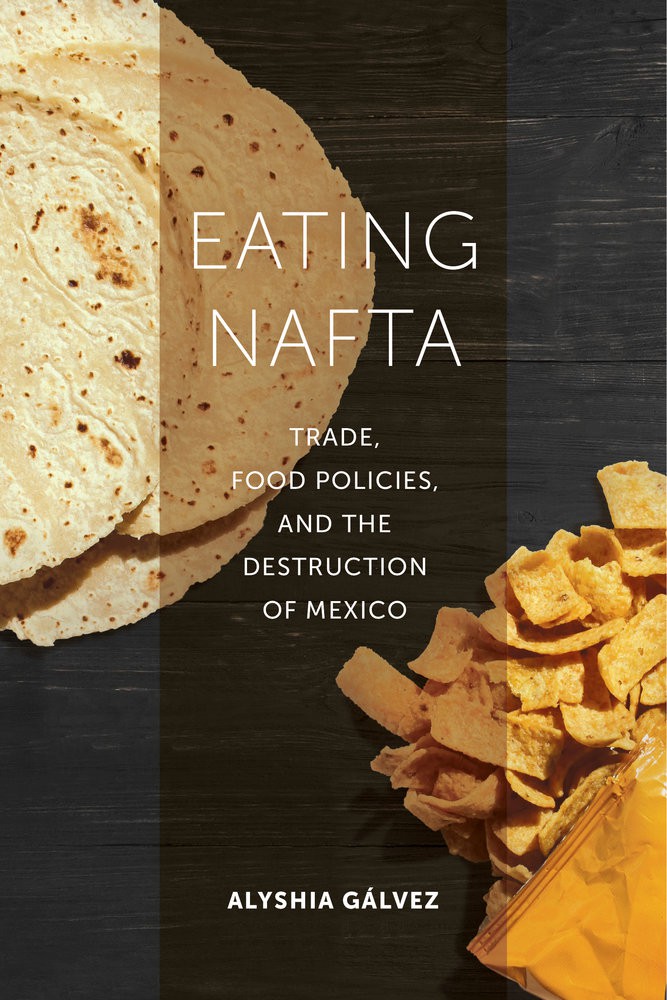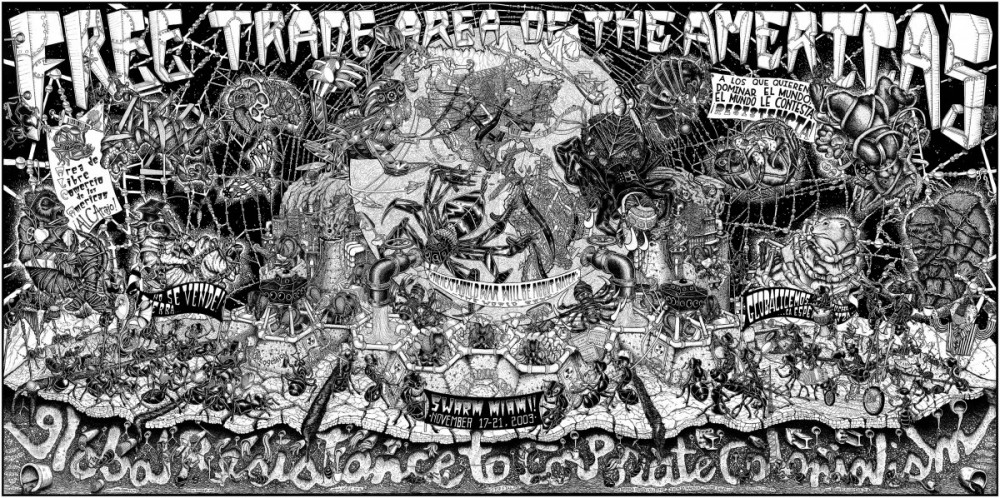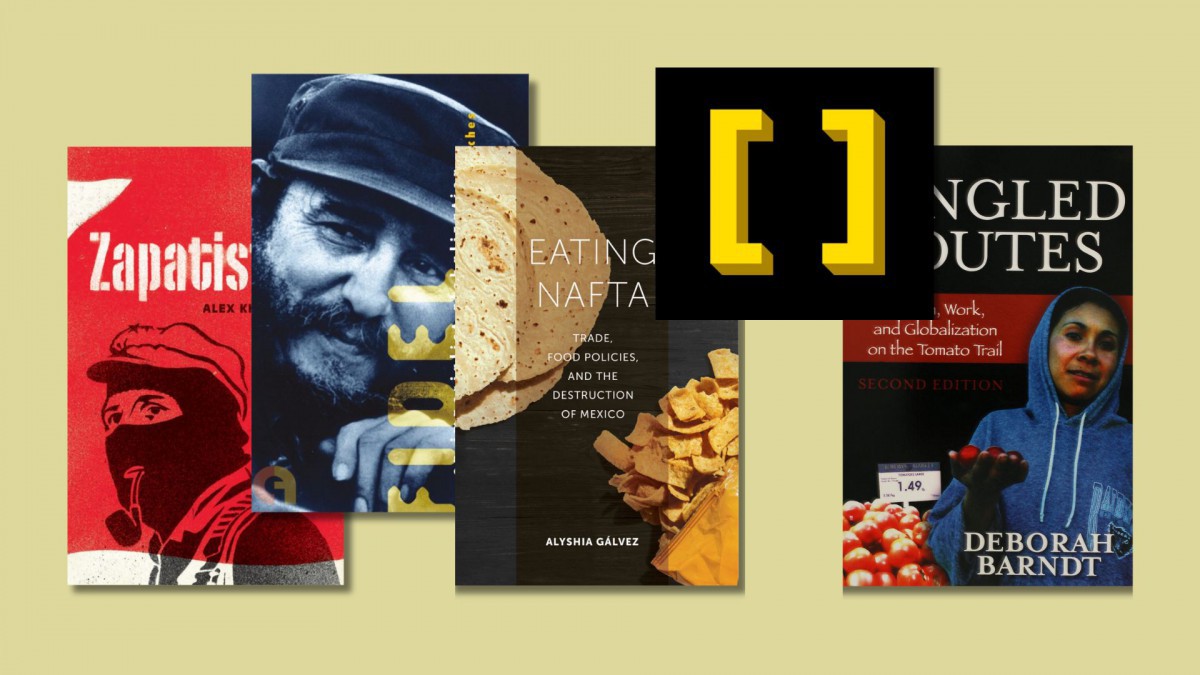Those of us in the anti-globalization movement in the late 1990s to early 2000s were grappling with an infinite array of free trade agreements. The emergence of the North American Free Trade Agreement (NAFTA) in 1994 was seen as a template for other forms of free trade agreements. In the following decades, it felt like capitalism had won, with increasing powers given to corporations and minimized protections for workers and the environment.
So, it felt like a bit of a shock when U.S. president Donald Trump announced NAFTA’s end during his first presidency, replacing it with the Canada-United States-Mexico Agreement, claiming to bring factory jobs “back” for American workers. Taking office for a second term in 2025, Trump has been raising tariffs against almost every country as a continuation of this agenda.
The immediate result has been a resurgence of Canadian nationalism, as many vow to buy Canadian-made products. Yet the history of the struggles and grassroots resistance to free trade remains invisible in mainstream media.
The debate about whether tariffs are good or bad is meant to divide workers around the world. Rather than buy into “Canada-only,” perhaps we need to reflect on how Canadian policies have furthered the exploitation of Canadian workers and, even more so, workers in poorer economies.
As part of this reflection, let’s explore how we can build stronger forms of international worker solidarity – rather than having Mark Carney tell us what’s good for us – how we can struggle for worker participation and democracy for everyone and the Earth.
Zapatistas: Rebellion from the Grassroots to the Global

Alex Khasnabish documents one of the strongest and most accessible introductions to the Zapatistas. The book weaves in the emergence of NAFTA as a template of a new neoliberal order and the response by a militant, Indigenous army launching a “war against oblivion.” While the book details a struggle specific to Chiapas in Mexico, Khasnabish clearly links the uprising and struggles of the Zapatistas with the rest of the world, detailing the impact of these free trade agreements and capitalist governments on actual farmers working the land, concepts of sovereignty and access to land, and the harm of displacement when land is taken over and privatized. He provides a template of resistance for others around the world. From here you can go deep into other readings by Zapatista spokesperson Subcomandante Marcos – one of the best writers and orators on resistance against globalization.
Tangled Routes: Women, Work, and Globalization on the Tomato Trail

This is an underrated book that more activists and anti-capitalists should be reading. By following the trajectory of the tomato – a fruit we often take for granted in our grocery stores – Deborah Barndt is able to clearly map out the impact of free trade.
Starting with the innocence of the tomato, she slowly takes readers through an incredible story of environmental and labour impacts and exploitation as the tomato journeys through various chains to reach our stores and bellies. It’s an accessible book that reads almost like a detective story, while exposing the impacts of tomato production in Mexico through a feminist lens on women workers from Mexico to the U.S. to Canada. Barndt connects the dots on how one product’s chain impacts workers differently from poorer to richer countries, helping readers visualize supply and commodity chains and how the integration of our economies has meant continued exploitation and colonial relationships for workers in Mexico.
Barndt’s research and writing on the various workers in all three countries is an eye-opening testament to the transformative impact of NAFTA on both workers and consumers.
Eating NAFTA: Trade, Food Policies, and the Destruction of Mexico

On Imperialist Globalization: Two Speeches by Fidel Castro

One of the ironies of the discussions of many free trade agreements involving Latin America or the Caribbean is that they often exclude Cuba and the impacts of U.S. sanctions on Cuba’s sovereignty and economy. This book features two speeches by Cuban revolutionary Fidel Castro, written in 1999. Castro spells out the continuation of imperialism through economic means as a way to maintain control and exploitation to benefit the few, showing how imperialism is rooted in globalization through pressure from the U.S. and other Western nations. While capitalists will often emphasize the benefits of more jobs, Castro reminds us that these jobs still create a billionaire class and an economic system that continues to exploit poorer countries.

Beehive Collective Poster: Free Trade Agreement of the Americas

This poster is a large-scale graphic narrative created in the lead-up to the 2001 Quebec City protests against the proposed free trade zone of the Americas, referred to as the Free Trade Area of the Americas (FTAA). Using insects and other animals to describe the destruction to life with these agreements, the poster is an interactive and accessible way to understand the power dynamics and forms of exploitation present in free trade agreements. The poster comes with instructions for its use and members of the Beehive Collective have hosted popular-education workshops on how to understand free trade as a system of exploitation. Tools like this are crucial for activists to integrate into on-the-ground storytelling as they provide a more compelling way to help audiences understand how free trade systems work, rather than the exclusionary and benign way economists and politicians talk about them.





